
Find Help
More Items From Ergsy search
-

What are the consequences of having an eviction on my record?
Relevance: 100%
-
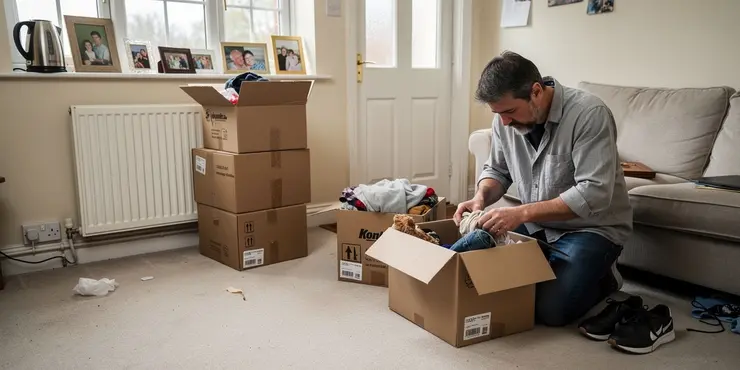
What happens if I stay beyond the eviction deadline?
Relevance: 56%
-
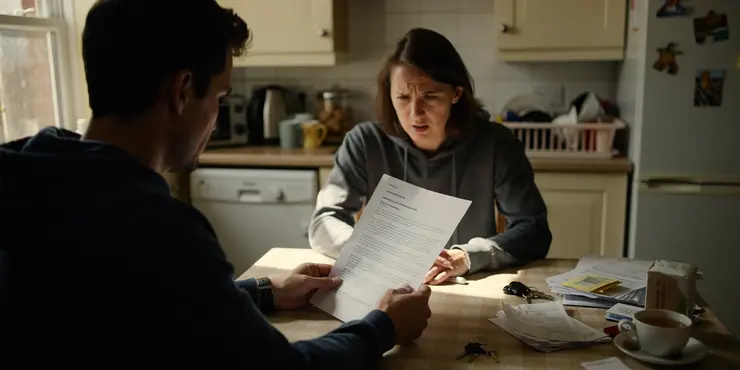
What can I do if my landlord wants to evict me?
Relevance: 55%
-
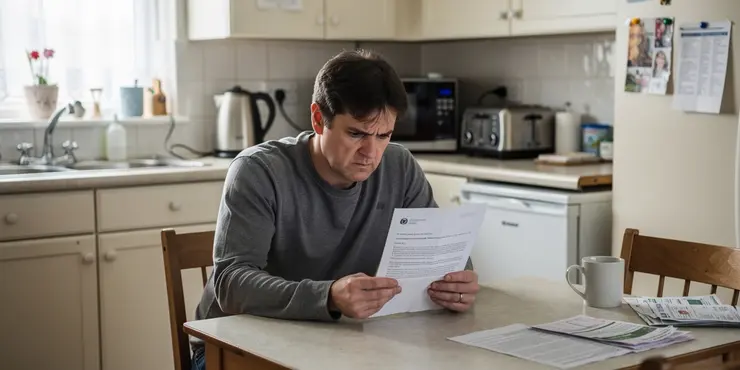
What can I do if I believe my eviction is retaliatory?
Relevance: 50%
-

Can eviction affect my credit score?
Relevance: 49%
-

Are there changes to the eviction process?
Relevance: 48%
-

Can a landlord evict me for complaining about property conditions?
Relevance: 47%
-
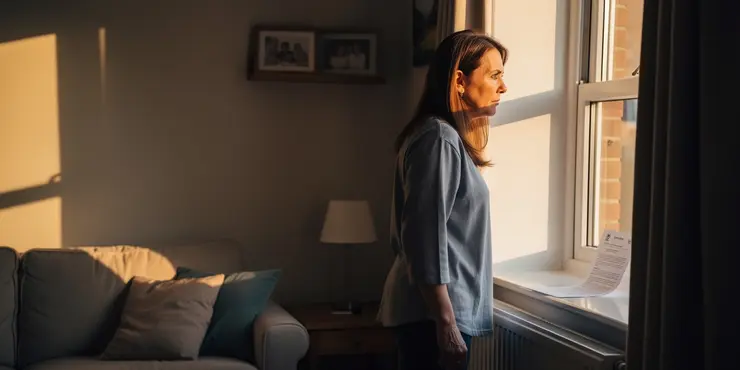
Can I appeal a court's eviction decision?
Relevance: 46%
-
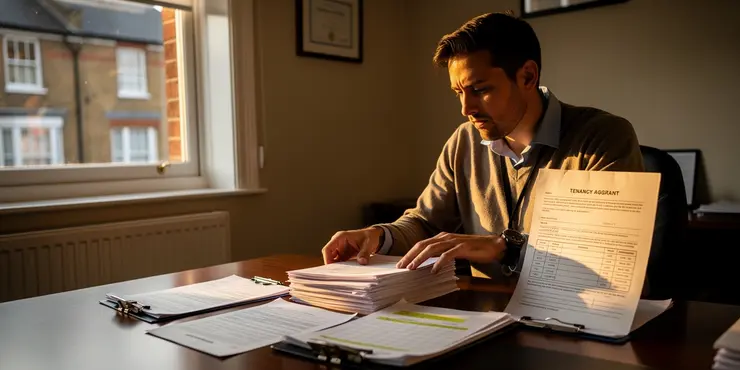
How can I prepare for an eviction court hearing?
Relevance: 45%
-
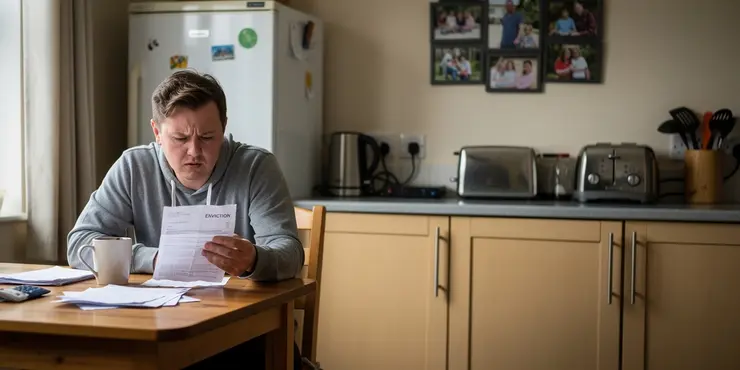
How can I contest or challenge the eviction?
Relevance: 45%
-
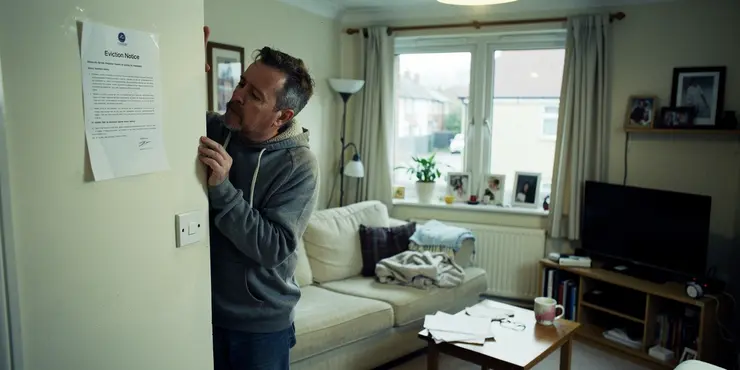
What are my rights during the eviction process?
Relevance: 45%
-

Can I stop an eviction if I catch up on rent payments?
Relevance: 45%
-

Has the notice period for eviction changed?
Relevance: 45%
-
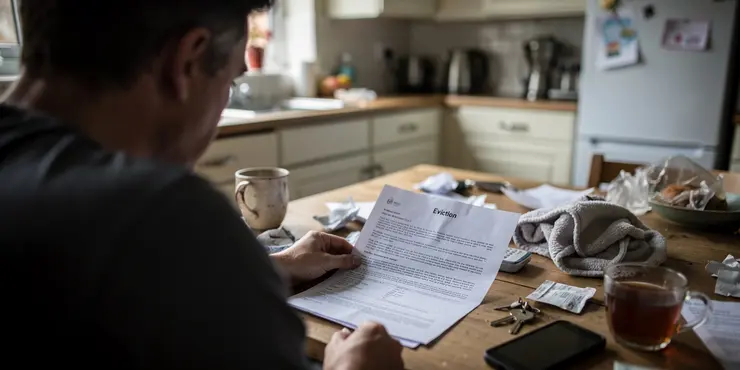
Does filing for bankruptcy stop an eviction?
Relevance: 44%
-
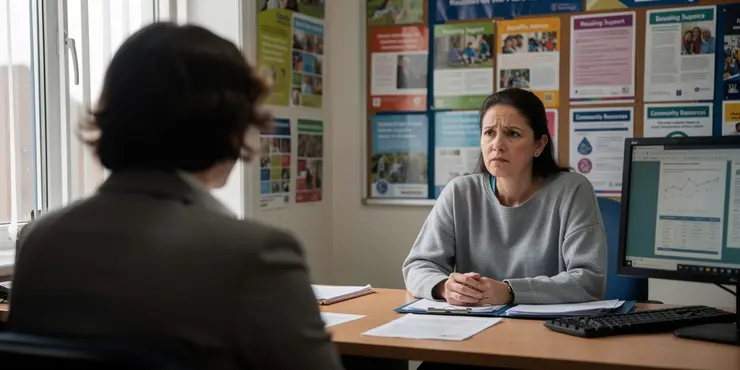
What should I do if I can't afford a lawyer for the eviction process?
Relevance: 44%
-

Is mediation an option to resolve eviction disputes?
Relevance: 43%
-
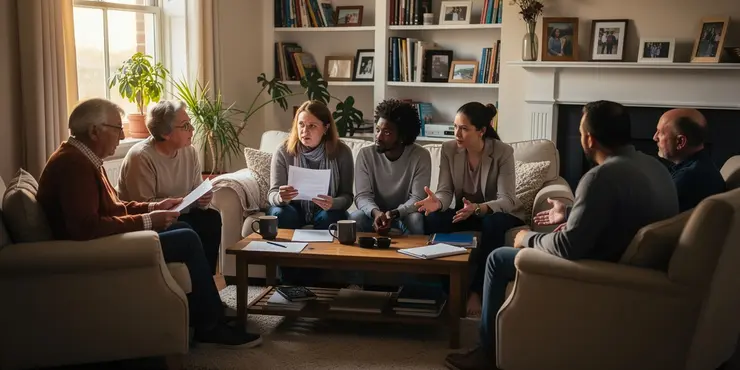
Can my landlord evict me without providing a reason?
Relevance: 43%
-

Can a landlord lock me out or remove my belongings to evict me?
Relevance: 42%
-
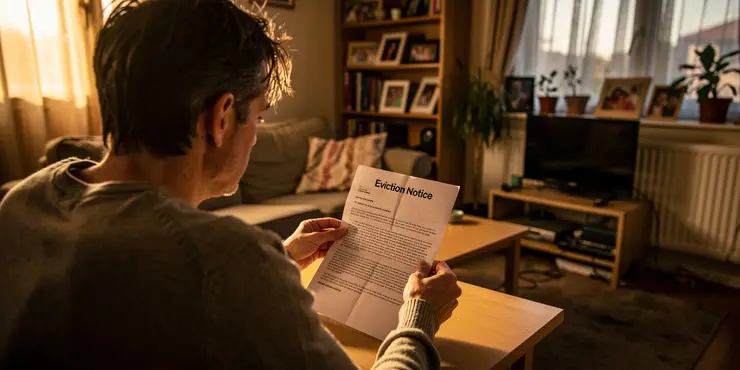
What should I do if I receive an eviction notice from my landlord?
Relevance: 42%
-
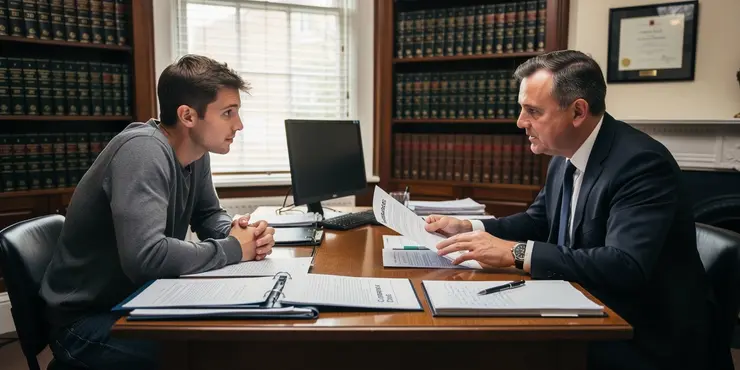
What are the consequences of dangerous driving?
Relevance: 42%
-
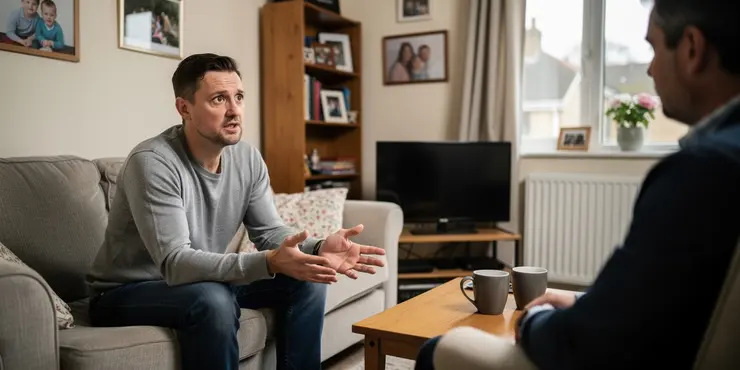
Can I negotiate with my landlord to avoid eviction?
Relevance: 42%
-
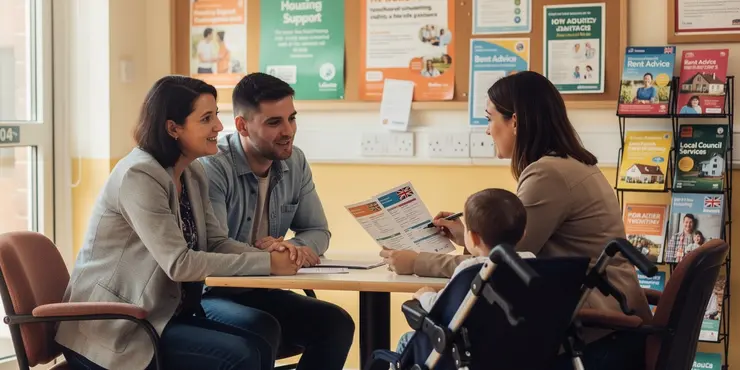
Are there any government programs that can help me avoid eviction?
Relevance: 40%
-

How long do I have to move out after receiving an eviction notice?
Relevance: 40%
-

How do I find alternative housing quickly if evicted?
Relevance: 39%
-
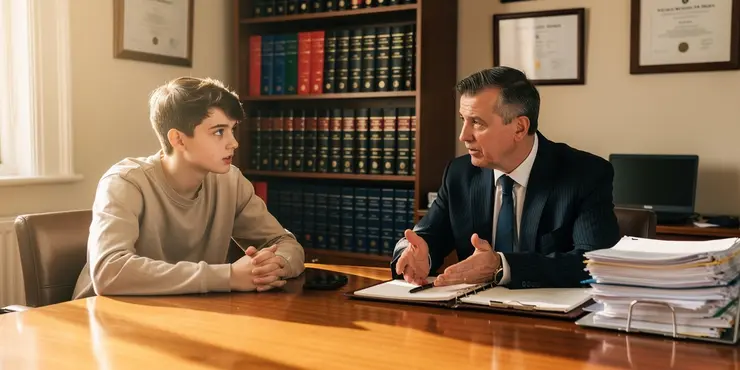
Are juvenile records accessible in the same way as adult records?
Relevance: 35%
-

What are the social consequences of binge drinking?
Relevance: 32%
-

Can dangerous driving lead to a criminal record?
Relevance: 32%
-

Legal Experts Warn of Consequences in Upcoming AI Regulation Bill
Relevance: 29%
-
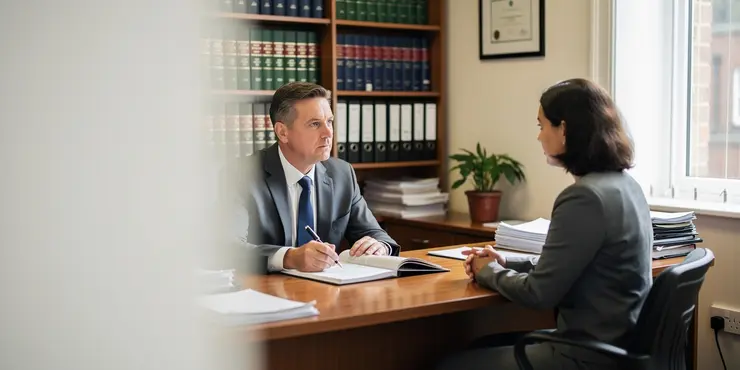
Can police records be expunged or sealed?
Relevance: 29%
-

What records should I keep for CGT purposes?
Relevance: 29%
-

What are the potential consequences for a company that fails to recall a dangerous product?
Relevance: 29%
-
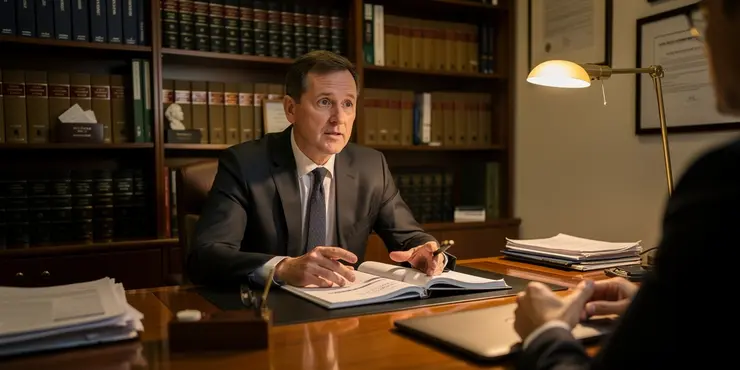
Do I have a right to see other people's police records?
Relevance: 29%
-

Can someone else request my police records on my behalf?
Relevance: 28%
-
Can my employer access my medical records without my consent?
Relevance: 28%
-
Are there privacy protections for my medical records?
Relevance: 28%
-
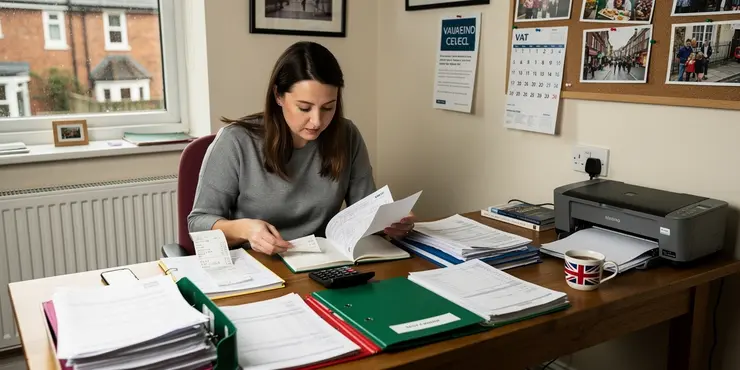
What records do I need to keep for VAT?
Relevance: 27%
-

What are the consequences for banks not complying with transparency standards?
Relevance: 27%
-
Do I have a right to see my medical records?
Relevance: 27%
-
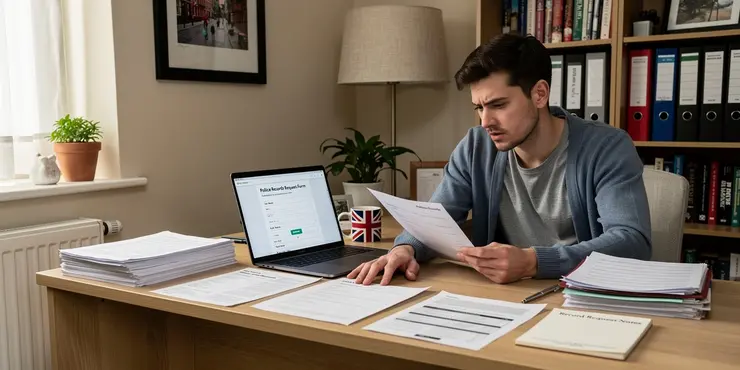
Are there any fees to obtain my police records?
Relevance: 27%
-
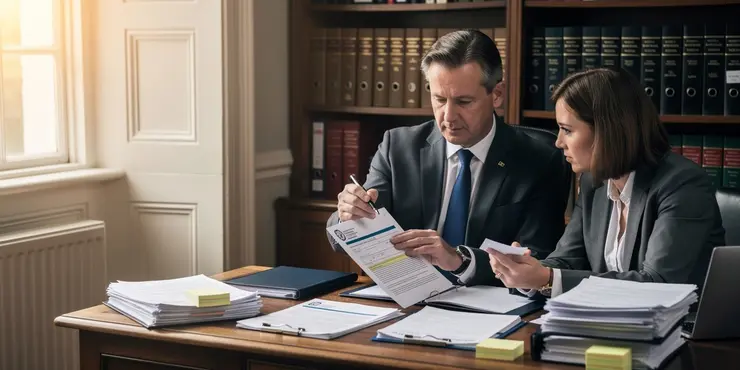
Can access to my police records be denied?
Relevance: 27%
Understanding Evictions in the UK
An eviction is a legal process whereby a landlord seeks to remove a tenant from a rental property, usually because of a breach of the tenancy agreement. In the UK, an eviction can leave a lasting mark on your rental history. Having an eviction on your record can have several significant consequences, affecting various aspects of your living and financial situation. Understanding these implications is crucial for anyone facing or attempting to prevent an eviction.
Impact on Future Renting Opportunities
One of the most immediate consequences of having an eviction on your record is the difficulty it creates when trying to rent another property. Many landlords and letting agents in the UK conduct background checks on potential tenants, which include checking for any eviction history. An eviction can signal to landlords that you might be a risky tenant, making them hesitant to rent to you. This could result in fewer housing options available to you and can also mean that you might face higher deposit requirements or need a guarantor to secure a rental.
Effect on Credit Rating
In the UK, while eviction itself might not directly affect your credit score, the circumstances leading to the eviction possibly could. For example, if your eviction was due to unpaid rent, landlords might have reported this debt to credit agencies or taken further legal action to recover the owed amount. This could result in a County Court Judgment (CCJ) against you. A CCJ stays on your credit report for six years and can severely impact your ability to secure credit, loans, or even certain financial products.
Challenges in Finding Employment
In some professions, particularly those involving financial trust or responsibility, potential employers might review your financial history as part of their background check process. An eviction, especially with any associated financial repercussions like CCJs, could be seen as a potential liability or indicator of financial instability. This might limit your employment opportunities in certain sectors.
Social and Emotional Consequences
Experiencing an eviction can be an emotionally taxing event, leading to stress, anxiety, and uncertainty about the future. The social stigma associated with eviction might also affect your confidence and mental wellbeing. It's important to address these emotional consequences, seeking support from friends, family, or professional services. Various charities and organisations in the UK offer counselling and housing advice to help individuals navigate these challenging times.
Steps to Mitigate the Impact
If you have an eviction on your record, there are steps you can take to mitigate its impact. Improving your credit score by ensuring all debts are paid on time, seeking out landlords willing to accept tenants with a blemished rental history, and maintaining open communication with potential landlords about your circumstances can all help. Additionally, legal aid and housing advice services in the UK can provide guidance on how to clear or challenge an unfair eviction from your record.
Understanding Evictions in the UK
An eviction is when a landlord tells a tenant to leave a rented home. This might happen if the tenant breaks the rules of their rental agreement. In the UK, if you get evicted, it can be a big problem. It stays on your record and can affect your life in many ways. It's important to know what could happen if you're facing eviction or trying to stop it.
Impact on Future Renting Opportunities
Getting evicted makes it hard to rent a new home. Landlords in the UK often check if people have been evicted before. If they see an eviction, they might think you could cause problems. This means you might find it harder to rent a place. You might also need to pay a bigger deposit or find someone to back you up when renting.
Effect on Credit Rating
Evictions can hurt your credit rating. If you were evicted because you didn't pay rent, a landlord might tell credit agencies. You might even get a County Court Judgment (CCJ), which stays on your record for six years. This makes it hard to borrow money or get loans.
Challenges in Finding Employment
Some jobs look at your financial history, especially if the job involves money. An eviction shows you might have money problems. This can make it harder to get certain jobs.
Social and Emotional Consequences
Being evicted can be very stressful and make you feel worried. It can also make you feel embarrassed or sad. It’s important to talk about how you feel with friends, family, or professional helpers. In the UK, there are charities that can give advice and support if you're facing eviction.
Steps to Mitigate the Impact
If you've been evicted, you can do things to reduce the impact. Pay your debts on time to help your credit score. Look for landlords who accept tenants with past evictions. Be honest with potential landlords about your situation. In the UK, there are services that can help you challenge an unfair eviction or clear it from your record.
Frequently Asked Questions
What is an eviction?
An eviction is a legal process by which a landlord removes a tenant from a rental property.
How long does an eviction stay on my record?
An eviction can stay on your rental history for up to seven years.
Can having an eviction affect my credit score?
While the eviction itself may not appear on a credit report, related collections or judgments can negatively impact your credit score.
Will an eviction prevent me from renting in the future?
An eviction on your record can make it more difficult to rent, as many landlords and property managers conduct background checks.
How does an eviction impact my ability to find housing?
An eviction can limit your housing options, as many landlords may view it as a red flag and may be hesitant to rent to you.
Are there any ways to remove an eviction from my record?
In some cases, you may be able to negotiate with your former landlord or take legal action to have the eviction removed, especially if there were errors in the process.
Can negotiating with a landlord prevent an eviction from going on my record?
Yes, negotiating a settlement or repayment plan with your landlord before the court process can prevent an eviction from being filed.
Does an eviction affect my mortgage application?
While an eviction itself may not directly affect a mortgage application, related financial issues like a lower credit score could impact it.
How can I improve my rental prospects with an eviction on my record?
You can improve your chances by offering a larger security deposit, providing strong references, or having a co-signer.
Is it possible to expunge an eviction record?
Some states allow for the expungement of eviction records under specific circumstances, but the process varies.
Do all landlords check eviction records?
Not all landlords check eviction records, but many do as part of their tenant screening process.
Will an eviction show up on a background check?
Yes, an eviction is likely to appear on a rental background check, which landlords commonly use.
Can I rent with an eviction on my record?
It is possible, but you may need to look for landlords who do not heavily weight eviction records or consider private landlords.
Are there rental assistance programs for those with evictions?
Yes, some nonprofits and local governments offer rental assistance to help those affected by evictions secure housing.
What legal protections do I have against eviction?
Tenants have rights, including the right to receive notice and the chance to address lease violations before an eviction can proceed.
Does an eviction impact my eligibility for public housing?
An eviction may affect your eligibility, particularly if it was due to lease violations or criminal activity.
How do I know if there is an eviction on my record?
You can check your record by obtaining a copy of your rental history or doing a self-background check.
What types of evictions can appear on my record?
Both court-filed evictions and settled cases with court records can appear on your rental history.
Can I explain an eviction on my rental application?
Yes, providing context and showing how you've improved your financial situation can help landlords consider your application.
Do eviction records differ by state?
Yes, the specifics of eviction records and their impact can vary depending on state laws and regulations.
What is an eviction?
An eviction is when you have to move out of your home. It happens when the person who owns your home tells you to leave.
If you want help, you can:
- Talk to someone you trust
- Ask a helper or an advisor
- Use pictures or videos to understand more
An eviction is when a landlord makes someone move out of their home. This happens by law.
How long does an eviction stay on my record?
If you have been evicted, it means you had to leave your home. This can show up on your record. A record is like a list of things you have done.
An eviction can stay on your record for 7 years. This means people can see it if they look up your history for 7 years.
To make things easier to understand or if you need help, you can:
- Ask someone you trust to explain things to you.
- Use apps or websites that read text aloud. This can help you understand better.
- Write down any questions you have and ask for help from a teacher or a helper.
An eviction is when you are told to leave a place you rent. It can show up on your rental record for up to seven years. This means if you try to rent a new place, the landlord might see it and ask questions. It helps to be honest and explain what happened. You can also ask someone to help you with this.
Will being told to leave my home make my credit score go down?
If you are told to leave your home, it might not show up on your credit report. But if you owe money or have court problems because of it, this can make your credit score go down.
Some things that can help you understand more are using simple words or getting help from someone who can explain things to you. Highlighting key points or using pictures can also make things clearer.
Does an eviction mean I can't rent a home later?
If you have been evicted, it might make it harder to rent a home in the future. An eviction is when a landlord asks you to leave their property. If this happened, some landlords might worry about renting to you again.
Here are some things you can do:
- Tell the truth about any evictions if asked.
- Offer to pay more money upfront, like a bigger deposit.
- Ask someone to write a good reference for you.
- Show proof that you can pay rent, like a bank statement or pay slip.
These ideas might help you find a new place to live.
Having an eviction on your record can make it harder to rent a home. This is because many landlords and property managers will check your background.
How does being told to leave my home affect finding a new place?
If you get kicked out of a house or apartment, it can make it harder to find a new place to live. Many people who rent out homes might worry if they see you have been kicked out before and might not want to rent to you.
Can I take an eviction off my record?
If you have an eviction on your record, you might want it removed.
Here are some steps you can try:
- Talk to a lawyer for advice.
- Check if the eviction was fair.
- See if you can make a deal with your landlord.
- Ask the court to clear your record.
Some tools or people who can help:
- Legal Aid Services.
- Support groups.
- Online guides.
Sometimes, you can talk to your old landlord to sort things out. If there were mistakes, you might be able to get help from a lawyer to fix the eviction.
Can talking with my landlord stop an eviction from showing up on my record?
If you talk and agree with your landlord, you might stop the eviction from going on your record.
Here are some tips to help:
- Ask a friend or family member to help you talk with your landlord.
- Write down what you want to say. Practice it first.
- Try to make a deal with your landlord, like paying a little bit more each month.
You can talk to your landlord to make a plan to pay your rent. Doing this before going to court can stop you from getting evicted. This means you can stay in your home.
Will being evicted hurt my chance to get a home loan?
If you have been evicted, it might not directly stop you from getting a mortgage. But if your credit score is lower because of money problems, it could make it harder to get a mortgage.
How can I find a new home to rent if I have been evicted before?
You can have a better chance by doing some things. First, you can give a bigger security deposit. Next, you can show good references. These are people who say nice things about you. Last, you can have a co-signer. This is someone who promises to help if you can't pay.
Here are some helpful ideas:
- Use a dictionary if you find hard words.
- Ask someone you trust to read with you.
- Take your time and read slowly.
Can you remove an eviction record?
Some places let you erase eviction records if certain things happen, but how to do it can be different in each place.
Do all landlords check if someone was kicked out of a home?
Some landlords do not look at eviction records, but many do. They check this when deciding if someone can rent their property.
Will an Eviction Show on a Background Check?
An eviction means you have to leave your home. It might show up when someone checks your past.
If you are worried, you can ask for help:
- Talk to someone you trust.
- Ask for advice from a help center.
- Use simple apps to keep important papers.
Yes, an eviction might show up when landlords check your rental history.
Can I rent a home if I have been evicted before?
If you were asked to leave where you lived before (this is called being evicted), it might be harder to find a new home to rent. But it is not impossible!
Here are some tips that might help:
- Talk to the landlord. Be honest about what happened and explain what you have done to fix the problem.
- Show that you are a good renter. You can use letters or notes from people you rented from before or your boss at work.
- Save some extra money. Having more money saved can help show that you can pay the rent.
- Ask someone to help you. This could be a friend or family member who can promise to pay the rent if you can't.
Remember, everyone makes mistakes, and some landlords will listen and give you another chance!
You can still find a place to rent. Try looking for landlords who do not worry too much about your past record. You might also try talking to landlords who rent their places privately.
Can people who have been evicted get help with rent?
Yes, some charities and local government offices can help pay for rent. This is to help people who might lose their homes find a place to stay.
What can I do if my landlord wants me to move out?
If your landlord wants you to leave your home, there are some rules they must follow. Here are some things you can do:
- Read your rental agreement: This paper tells you what your landlord can and cannot do.
- Ask for help: Talk to someone who knows the rules, like a housing advisor or lawyer.
- Look for support: Charities or local councils can give you advice and help.
If you feel worried or confused, you can use tools such as reading apps that read aloud or highlight important parts for you.
People who rent homes have rules to protect them. If something is wrong, they must be told about it. They should also get a chance to fix the problem before they have to leave their home.
Will being evicted stop me from getting public housing?
If you had to leave your home because you broke the rules or did something bad, it might make it harder for you to get another place to live.
How can I find out if I have an eviction on my record?
If you want to know if you have an eviction on your record, you can do these things:
- Check your rental history report. You can ask a company to give you a copy. This will show if there is an eviction.
- Look at your credit report. Sometimes, evictions are listed there. You can get a free credit report once a year.
- Ask your landlord or rental agency. They might be able to tell you if there is an eviction on your record.
If you need help, you can:
- Ask a friend or family member to help you read the reports.
- Use a computer or smartphone tool that reads text out loud.
- Talk to a local housing counselor for advice.
You can look at your rental history or do a background check on yourself to see your record.
What kinds of evictions might show up on my record?
Evictions are when you have to leave your home because of a problem.
Here are some reasons why you might have to leave:
- If you don't pay your rent.
- If you break the rules of where you live.
- If the landlord needs the property back.
To help understand, you can:
- Ask a friend or family member to explain.
- Use pictures or drawings to make it easier.
- Talk to someone who helps people with housing problems.
Evictions taken to court and cases settled in court can show up on your rental history.
Can I talk about why I had to leave my home?
Yes, telling your story and showing that you've made your money better can help landlords say yes to your application.
Are eviction records different in each state?
Eviction records can be different depending on where you live. Each state has its own rules about evictions.
Here are some simple ways to understand:
- Check local rules: Look up rules for your state. You can ask someone to help you find this information online.
- Get advice: Talk to a person who knows about housing, like a lawyer or a housing counselor.
- Use pictures and charts: Sometimes pictures or simple charts can help you understand better.
Getting some help can make learning about eviction records easier!
Yes, eviction rules can be different in each state. This means an eviction can affect people in different ways depending on where they live.
Useful Links
This website offers general information and is not a substitute for professional advice.
Always seek guidance from qualified professionals.
If you have any medical concerns or need urgent help, contact a healthcare professional or emergency services immediately.
Some of this content was generated with AI assistance. We’ve done our best to keep it accurate, helpful, and human-friendly.
- Ergsy carfully checks the information in the videos we provide here.
- Videos shown by Youtube after a video has completed, have NOT been reviewed by ERGSY.
- To view, click the arrow in centre of video.
- Most of the videos you find here will have subtitles and/or closed captions available.
- You may need to turn these on, and choose your preferred language.
- Go to the video you'd like to watch.
- If closed captions (CC) are available, settings will be visible on the bottom right of the video player.
- To turn on Captions, click settings .
- To turn off Captions, click settings again.
More Items From Ergsy search
-

What are the consequences of having an eviction on my record?
Relevance: 100%
-

What happens if I stay beyond the eviction deadline?
Relevance: 56%
-

What can I do if my landlord wants to evict me?
Relevance: 55%
-

What can I do if I believe my eviction is retaliatory?
Relevance: 50%
-

Can eviction affect my credit score?
Relevance: 49%
-

Are there changes to the eviction process?
Relevance: 48%
-

Can a landlord evict me for complaining about property conditions?
Relevance: 47%
-

Can I appeal a court's eviction decision?
Relevance: 46%
-

How can I prepare for an eviction court hearing?
Relevance: 45%
-

How can I contest or challenge the eviction?
Relevance: 45%
-

What are my rights during the eviction process?
Relevance: 45%
-

Can I stop an eviction if I catch up on rent payments?
Relevance: 45%
-

Has the notice period for eviction changed?
Relevance: 45%
-

Does filing for bankruptcy stop an eviction?
Relevance: 44%
-

What should I do if I can't afford a lawyer for the eviction process?
Relevance: 44%
-

Is mediation an option to resolve eviction disputes?
Relevance: 43%
-

Can my landlord evict me without providing a reason?
Relevance: 43%
-

Can a landlord lock me out or remove my belongings to evict me?
Relevance: 42%
-

What should I do if I receive an eviction notice from my landlord?
Relevance: 42%
-

What are the consequences of dangerous driving?
Relevance: 42%
-

Can I negotiate with my landlord to avoid eviction?
Relevance: 42%
-

Are there any government programs that can help me avoid eviction?
Relevance: 40%
-

How long do I have to move out after receiving an eviction notice?
Relevance: 40%
-

How do I find alternative housing quickly if evicted?
Relevance: 39%
-

Are juvenile records accessible in the same way as adult records?
Relevance: 35%
-

What are the social consequences of binge drinking?
Relevance: 32%
-

Can dangerous driving lead to a criminal record?
Relevance: 32%
-

Legal Experts Warn of Consequences in Upcoming AI Regulation Bill
Relevance: 29%
-

Can police records be expunged or sealed?
Relevance: 29%
-

What records should I keep for CGT purposes?
Relevance: 29%
-

What are the potential consequences for a company that fails to recall a dangerous product?
Relevance: 29%
-

Do I have a right to see other people's police records?
Relevance: 29%
-

Can someone else request my police records on my behalf?
Relevance: 28%
-
Can my employer access my medical records without my consent?
Relevance: 28%
-
Are there privacy protections for my medical records?
Relevance: 28%
-

What records do I need to keep for VAT?
Relevance: 27%
-

What are the consequences for banks not complying with transparency standards?
Relevance: 27%
-
Do I have a right to see my medical records?
Relevance: 27%
-

Are there any fees to obtain my police records?
Relevance: 27%
-

Can access to my police records be denied?
Relevance: 27%


